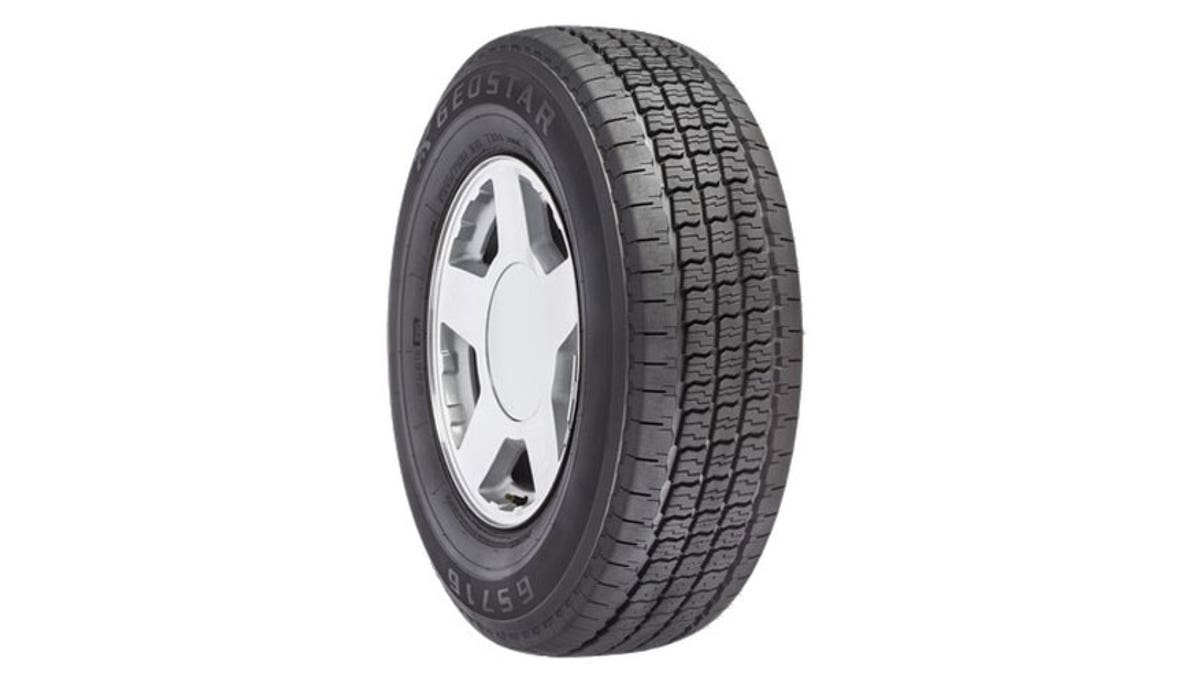
With prices starting at just $89, less than half the cost of better-known models, tires from China may seem like an irresistible deal. That’s why, for the first time, Consumer Reports included a few Chinese brands in our latest tests: Geostar, Pegasus, and Sunny.
These were included in the recently published the results of testing 20 all-weather and all-season tires for light-duty pickups and SUVs. A fourth brand, from Aeolus, was tested but not reported when we couldn’t find a ready supply of tires for consumers. This supply issue seems to be a problem when buying “off brand” tires, because you don’t know whether the tires will be around for any length of time should you need a replacement.
Tires are a global commodity, and many of the major brand names that Consumer Reports tests are manufactured in China. But those tires are designed and manufactured to quality standards dictated by the original manufacturers. Chinese tire brands don’t have that oversight, nor the marketing foresight to design products well-suited to the specific requirements of the U.S. consumer. While we can’t address specific tire build quality, our all-weather tests show that these tires simply don’t measure-up to most of the well-known brands. The tested tires from Geostar, Sunny, and Pegasus finished at the bottom of our ratings.
The Geostar GS716 was the most well-rounded of the three, offering excellent dry braking, very good handling, and average tread life. But wet stopping performance was just average, and snow traction and stopping on ice was only fair. At $114 in our 265/70R17 test size, the Geostar tire might appeal to a cost-conscious buyer. Better known brand-name tires average about $150. The cost savings is attractive, but we’d caution you to not gloss over the performance shortfalls, as the Geostar mustered only an 18th place finishout of 20 models tested. The cheaper Sunny SN3606 ($89) and Pegasus Advanta SUV ($95) came in a dismal 19th and 20th, respectively. These tires stop reasonably well on pavement and offer impressive hydroplaning resistance, but they have poor snow traction and just fair ability to stop on icy roads. Both models have a stiff and noisy ride, plus they wear quickly, too.
More From Consumer Reports
Aside from the performance lows, if value is a high priority, consider that the Pegasus cost about half as much as a top-scoring tire, the Michelin LTX M/S2. But keep in mind that the Michelin will last almost three times longer. Factor in the cost of buying two additional sets of tires, plus mounting and balancing, and you could save hundreds of dollars, not to mention get a better all-weather performing tire, if you choose the Michelin.
Certainly if you are on tight budget, and who isn’t nowadays, buying a cheap tire is better than riding on worn-out tires. But as our tests show, buying bargain-priced tires such as these Chinese models isn’t the right choice for the long haul.
—Gene Petersen
Copyright © 2005-2014 Consumers Union of U.S., Inc. No reproduction, in whole or in part, without written permission. Consumer Reports has no relationship with any advertisers on this site.